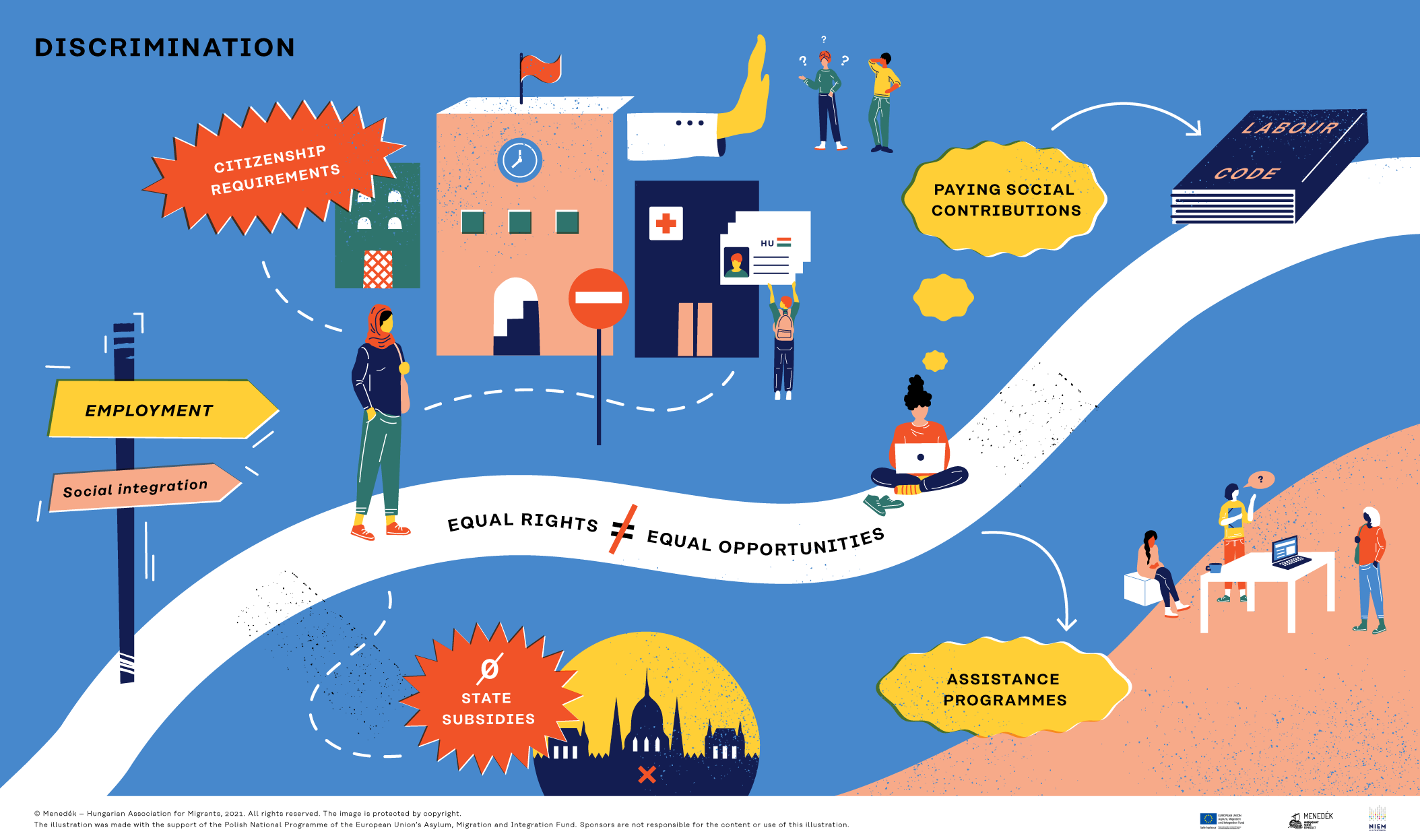
For refugees, employment is the engine of integration. The domestic labor market is protected by law, but it is not very discriminatory in an international comparison, so if we look at the literal text of the regulations, we do not see any discrimination that is specifically directed against beneficiaries of international protection.
However, equal rights do not mean equal opportunities!
Out of the more than 4 million employees in Hungary, the total number of people working in public administration, education and health is 800-860 thousand, and in these areas a condition of employment is having Hungarian citizenship, so these areas remain closed to beneficiaries of international protection.
In the private sector, the combined effect of unfavorable treatment of refugee job seekers and employees, and the existing legal restrictions may be a root cause of discrimination.
These adverse situations do not usually reach official or court dispute resolution forums. On the one hand, the victims are unfamiliar with law enforcement institutions, and on the other hand, most of them strive to blend in and integrate into Hungarian society.
There are no state programs to help refugees find employment directly or indirectly (eg a Hungarian language course). Since 2018, civil society institutions, which provide several services and support in one place, do not have access to EU funds for this purpose (AMIF).
It would be important to review and reduce the number of job profiles that require Hungarian citizenship, and to launch programs to help integrate into the labor market. Training within government offices could also raise awareness at the administrative level about the employment rules of beneficiaries of international protection.
Equal opportunities could be increased by amending the Labor Code. Instead of the current neutral regulation (which does not apply positive discrimination), for example, the employment of beneficiaries of international protection could be helped by reducing employer contributions.
